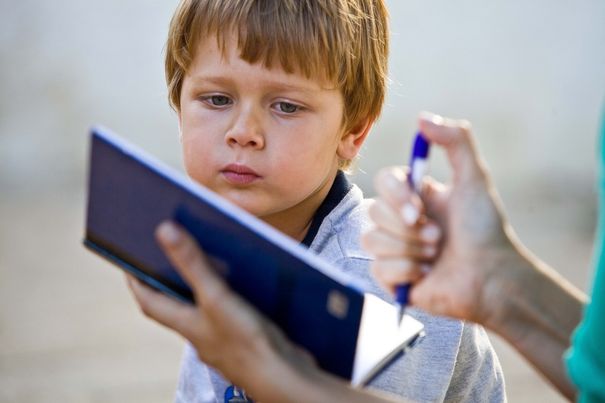Poetry terrorists
By Antonia Giraldi The Kindergarten Teacher (Nadav Lapid, Israel, 2014)

Like poetic inspiration, violence is contagious. It is in the air: in the camera’s panoramas, in the dangerous proximity of certain bodies and objects, in the extravagance of dance and in the volume of sound. Yoav, a five-year-old boy who can barely read and pronounces with difficulty, is an excellent poet who every now and then walks from left to right with determination and announces that he has a poem. In the meantime, he runs towards the sandbox, scratches the wall, swings himself, jumps on the camera and loudly sings xenophobic songs about football with his friend from kindergarten. Despite the autobiographic gesture (director Nadav Lapid also came up with poems in the middle of his games when he was five years old), the film wanders off from it. The protagonist is Nira, an ordinary woman and kindergarten teacher, married and with two teenage kids that we know little about, who one day discovers this young poet. It is her point of view that will circulate through different phases, exposing her and exposing Yoav to different stimuli, becoming more and more unpredictable. A “poetry terrorist” says Nadav, for whom the depth of poetry, like religion, has no longer room in this world. Standing up to this frustration, the teacher, captivated by her discovery, will take her methodologies to the extreme, slowly surpassing the physical and psychological boundaries of this child prodigy, who does no appear to understand the words he produces nor the passions he provokes. In that way, Nira’s everyday life, among songs, nap supervisions, a pleasant life with her couple and the regular attendance to a poetry workshop where with the greatest innocence she puts a five-year-old boy’s poems to the test, will plunge into the mystery of Yoav’s mind and perceptions. The camera, that up to now had tried to survive intact in this tactile world of welcome hugs, races and sand, will dramatically change scale: from being set at ground level under the rain to keeping a very straight line when facing the skyline, like from the eyes of a cat or the eyes of an adult, Nira will say. Nira will then try different teaching methods, to try to figure out, to dissect this child’s head. The violence and the feeling of danger hang in the cinema, filling that universe of experimentation and artistic learning with phantoms of beauty, animality and instinct. At this point, bodies are charged with a new danger. A perversity appears, extracted from an imaginary other, no longer poetic but sexual, where the transgression of the poetic space suddenly becomes physical. Nira bathes Yoav’s apparently clean body, looking for spaces of intimacy where she can approach and perhaps catch that poetic inspiration.
Mariángela Martínez Restrepo Talent Press BsAs Coordinator/Editor Clara Picasso Text Translator

